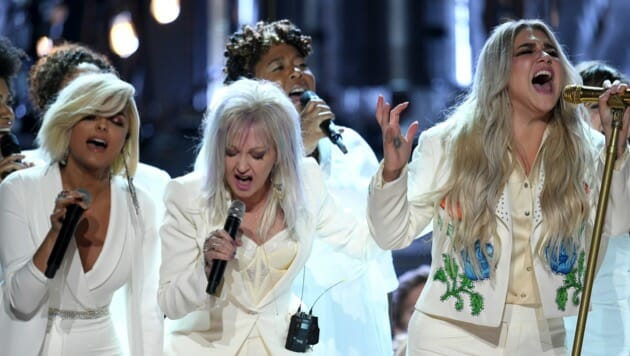Despite Best Efforts, the Grammys’ Woke Act Fell Flat
This year's Grammys were supposed to be different; in the end, they chose to award the status quo.
Getty Images
This year’s Grammy Awards seemed poised to be more politically and socially aware than ever. On the red carpet, celebs donned white roses in support of the Time’s Up movement, following the lead of the Golden Globes, where women wore black and took a bold stand against sexism in their industry. So when Kendrick Lamar, the first performer of the night, took the Madison Square Garden stage in front of the American flag, backed by men dressed in military garb, it was an auspicious start. Ultimately, though the event fell flat. The Grammys’ new woke identity was right there on the tee, but when the Recording Academy finally took its swing at something bigger, it still missed.
Despite Lamar’s electrifying performance (which ended with dancers in hoodies cut down by the sounds of gunshots) and several other purposefully pointed moments, the Grammys never really found their footing. Early in the broadcast, pop star Alessia Cara won Best New Artist, but there would be no other major female wins for the rest of the night. Later, Janelle Monae introduced Kesha with a firm “Time’s Up” warning for the music industry: “We come in peace, but we mean business.” With help from artists including Cyndi Lauper and Andra Day, Kesha offered a gut-wrenching performance of her song “Praying,” which alludes to her former producer and alleged abuser, Dr. Luke. “I’ll bring thunder, I’ll bring rain / When I’m finished, they won’t even know your name,” she belted, verging on tears. Moments later, her gutsy declaration was devalued when the trophy for Best Pop Solo Performance was delivered to Ed Sheeran—the only male nominee in the category.
-

-

-

-

-

-

-

-

-

-

-

-

-

-

-

-

-

-

-

-

-

-

-

-

-

-

-

-

-

-

-

-

-

-

-

-

-

-

-

-








































